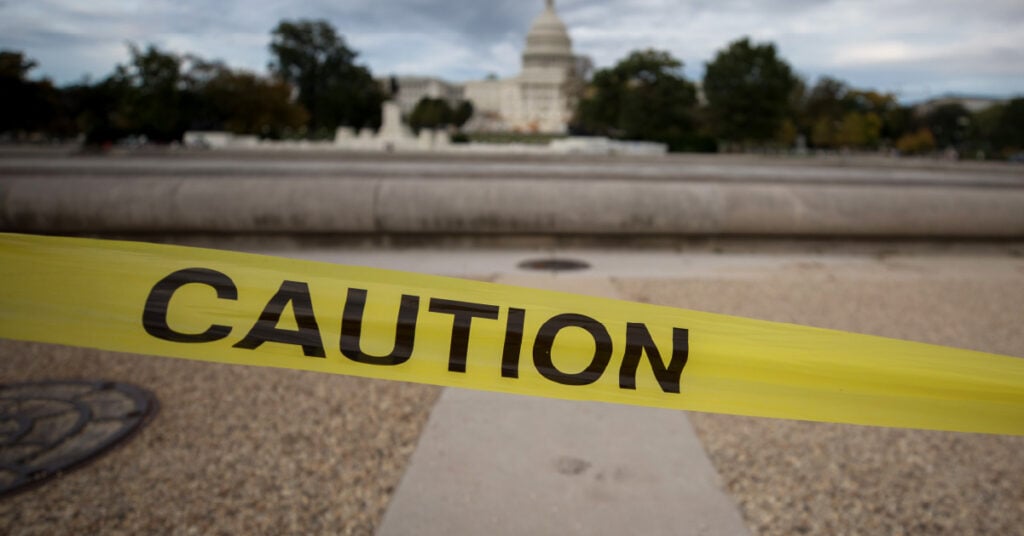As the Washington, D.C. region heads toward a likely recession, local policymakers will need to look to new revenue sources to help lessen the pain. In D.C., lawmakers ought to adopt a simple reform that would raise substantial revenue and make the District’s business tax system fairer.
The D.C. metro area – the District of Columbia plus Maryland and Virginia, which locals call “the DMV” – is probably heading into a regional recession. The cause is actions by the federal government – including federal layoffs, spending cuts, and tariffs – that will hit local businesses and residents hard. D.C.’s Chief Financial Officer predicts a “mild recession” for the District. Lower wages, business profits, and spending will mean less tax revenue. In past recessions, Congress has stepped in with federal aid, but this time the reverse is likely to occur: proposed cuts to Medicaid, food assistance, and other programs would shift new costs onto D.C. government and turn this “mild recession” into something far worse.
While some local spending cuts in response to this crisis are inevitable, the District will also need to increase revenues. Without such additional revenues, the mayor has proposed to repeal its new child tax credit and cut funding for health care, child care assistance, and housing, compounding the damage from federal cutbacks. One potential new revenue source is a low-rate Business Activity Tax (BAT) – a simple tax on local and national businesses that conduct economic activity in the District and benefit from local services. A report I coauthored earlier this year with Erica Williams and Tazra Mitchell for the DC Fiscal Policy Institute explains how a BAT could both address budget shortfalls and fix a longstanding inequity in the District’s tax system. We estimate that a 2 percent BAT rate could generate approximately $500 million a year.
The Unfair Status Quo
Currently, many profitable businesses operating in the District contribute nothing to the city’s tax base. Due to a federally-imposed loophole from a 1979 court ruling, professional services firms — including major law firms and lobbying agencies — avoid business taxes if their owners live outside the District. About one-third of mid-sized and large D.C. businesses with gross receipts over $5 million are exempt from the unincorporated business franchise tax.
Meanwhile, these businesses benefit from the District’s infrastructure, transit systems, and public services while shifting the tax burden to residents and other businesses.
A Simple Solution: The Business Activity Tax
A Business Activity Tax (BAT) would implement a low-rate tax on business economic activity. Key features include:
- Exempts the first $200,000 of activity, protecting small businesses
- Affects primarily businesses currently paying little or no tax
- Makes the District’s tax system more racially equitable, as most exempt businesses are white-owned
- Creates minimal incentive for businesses to relocate
New Hampshire’s similar Business Enterprise Tax has proven successful, with bipartisan support and no negative impact on business decisions. It’s simple to administer, stable during economic fluctuations, and broadens the tax base effectively. And it is consistent with federal law because it is not an income tax.
A Better Path Forward
The BAT represents a fair approach to D.C.’s budget challenges. Rather than only cutting services or raising regressive taxes that disproportionately affect low- and middle-income residents, it ensures all businesses benefiting from D.C.’s economy contribute their fair share.
It would take some time to establish this tax, but the effort is worthwhile. There are regulations and forms to draft and outreach to do to ensure that business taxpayers are aware of new obligations. That’s why it is important for the D.C. Council to act sooner rather than later to get the ball rolling.




